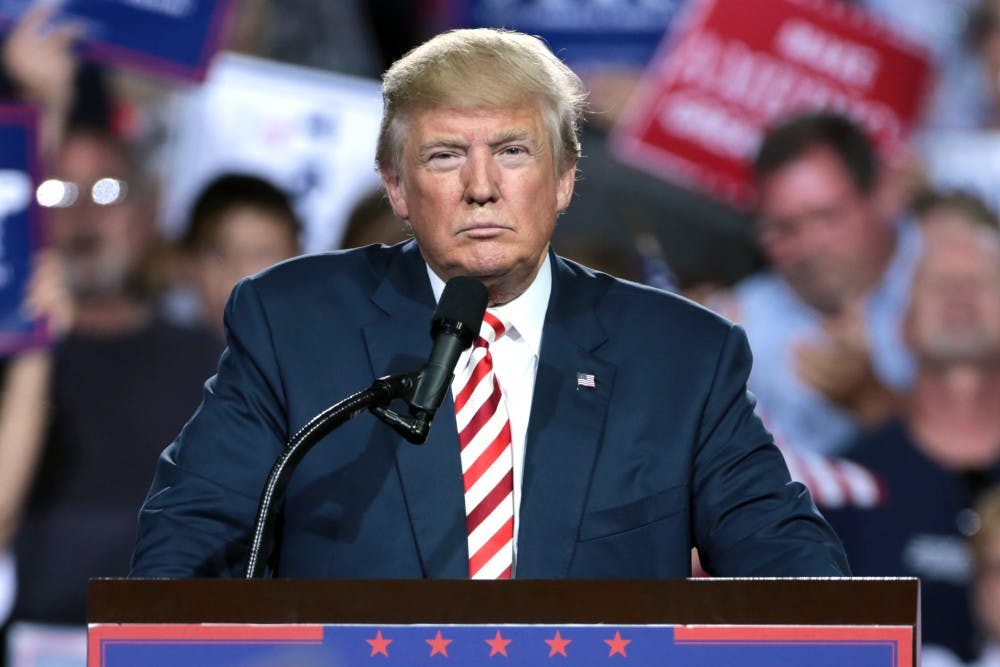On September 16, the Department of Education announced an investigation into Princeton’s “admitted racism,” referring to President Eisgruber’s letter that acknowledged and addressed the systemic racism currently endemic in higher education, and Princeton in particular. What followed should remind us that what is at stake in this upcoming election can be a matter of life and death.
Just days after the DOE’s announcement, a bomb threat prompted the Department of Public Safety to issue an evacuation order for the Art Museum, Firestone Library, Nassau Hall, and the University Chapel. While the cause of the bomb threat remains unknown, its timing, coupled with the Trump administration’s history of inciting violence, makes it not unlikely that it was connected to the investigation. Indeed, African American Studies Professor Keeanga-Yamahtta Taylor expressed this sentiment on Twitter shortly following the event, calling it “no coincidence,” and pointing to Trump’s history of inciting violence through racism.
Even though I was nearly two hundred miles away from those buildings when I heard the news, my heart dropped. The university, a home I haven’t even been able to claim yet, was under attack.
Soon after, I got a call from an ROTC leader, who was making sure I and the other ROTC cadets, some of whom were on campus, were safe. As thankful as I was to report that I was still in Maryland at the time, I was distressed that these calls even had to be made. When I signed up for ROTC, I expected to learn about weaponry that our government uses, for better or for worse. I didn’t expect my college to be a target of violence based on the government’s words.
In retrospect, this should hardly have come as a surprise. Unfortunately, the actions of the Trump administration have often spurred related violence. We know this “ritual,” as Taylor described it, all too well. For example, Trump’s travel ban of primarily Muslim countries and the racially charged language around the COVID-19 crisis preceded upticks in violence toward Muslim Americans and Asian-Americans, respectively. The DOE investigation appears to be just the latest example.
As recently as the first presidential debate, the president has revealed his unfounded paranoia concerning education on the role of racism in America, explaining that he decided to end anti-bias training in all federal agencies because he thought it was racist. Of course, the truth is that we do not speak racism into existence by acknowledging it, despite what Trump seems to think. The first step to finding a solution is to acknowledge the problem. When we learn to recite the Pledge of Allegiance as children, we learn to describe our nation as one “with liberty and justice for all.” Anti-racist education only makes clear that our nation is not nearly there yet. Even the founders knew that we will always be working toward a “more perfect union.”
Although being touched by the violence that the President and his administration perpetuate through their racist actions is indeed unnerving, we must remember that many Americans face these threats and the execution of these threats every day. The investigation of Princeton is not merely an attack on the school, but a continuation of the Trump administration’s mission to undermine racial progress in this country, making them complicit in violence which has resulted from their words and actions.
This mission has been carried out directly by the administration through lawsuits such as the one filed against Yale for its affirmative action policies, but also via racial violence carried out by individuals and white supremacist groups, some of Trump’s strongest supporters.

Let us keep fighting in the face of danger, as and alongside people under attack. Let us make sure there is soon no longer a president who encourages violence against people because of their race or ethnicity or because they are fighting that discrimination. Let us get out (to the polls or our mailboxes) and vote for a different future.
Mollika Jai Singh is a first-year prospective public policy major from Rockville, Md. She can be reached at mjsingh@princeton.edu.









